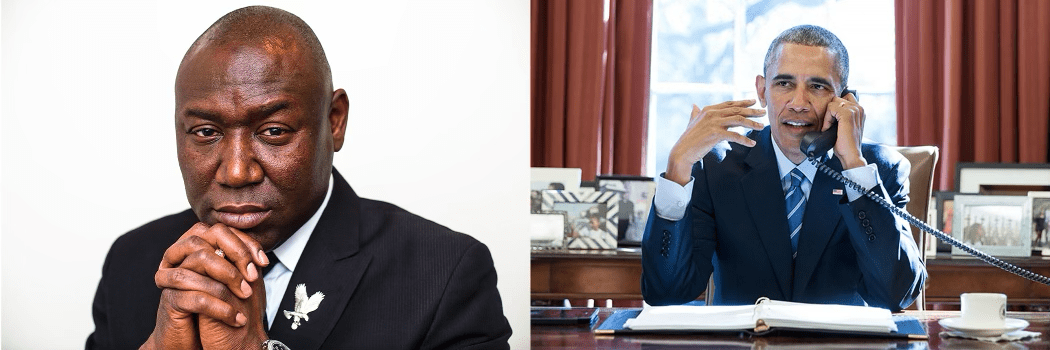Fontana, CA — Imagine attending an evening mixer. It may be for business or pleasure. But whatever the reason for attending, there are hundreds of people in the room—many don’t know one another, so you can imagine that the small talk is in full effect.
Let’s say, for instance, that while you’re attending and attempting to mingle, you approach someone very politely and introduce yourself. “Hi—my name is John, and I work for Acme Industries here in town as the Assistant Chief of Cyber Innovation.” The person you spoke to then introduces themselves, sharing their name and what they do for the city. Then you continue to make small talk and say, “Wow, this event is well attended—I should probably try to attend more of these mixers. I know our company needs to be more engaged with the community, and it is clear that many community leaders are in attendance. Is this your first time attending?’ At this point, the person doesn’t respond—they look at you as if you didn’t ask them a question. Puzzled, you re-engage the question: ” I know it’s sort of loud in here—I was asking if this was your first event or do you frequent these mixers?” Then the other person continues to look at you, still does not respond. Then you say, “I’m sorry—did I say something to offend you?” Still no response.
There could be several reasons why the other person did not reciprocate in conversation: they may have had a hard time hearing, perhaps seeing the inquiring person as a weirdo, or even thought the small talk approach was cheesy. Or it could be something that has nothing to do with you.
I suggest that, regardless of the reason for the non-response, ultimately, there was no response and no reciprocation. So, move on.
This is also true of dating and attempting to establish something with someone you’ve just met.
I am amazed at the time people will invest in trying to find out why someone ghosted them, having fully engaged in the get-to-know-you stage, and then, seemingly out of thin air, they vanish. No forewarning, not even a, “Hey—I don’t think I’m as interested in dating as I initially thought, but I wish you the best!” Just gone-zo.
Here’s another one: you met someone, expressed your interest, and they seemingly reciprocate, and you’ve been seeing each other strongly for about a month. Then you notice a slight dip in the frequency of calls. You both would talk every morning and evening, and now it’s three calls a week. You address the noticeable drop-off in communication and the difficulty of seeing one another. Upon doing this, the other person doesn’t convey a sense of concern or urgency in their response, and even after the conversation, the tailing-off pattern persists.
Why is this happening?
Please allow me to give you the top three reasons why this is happening.
One: It doesn’t matter. Two: It doesn’t matter. Three: It doesn’t matter.
Why am I saying this?
If you’ve done your best to make it clear that you’re interested, and let’s say you’re checking in to make sure everything is going well or if there are any concerns, and the other person still appears to be cavalier about responding to your observations, the truth is it could be occurring for several reasons which may or may not have anything to do with you. Life is way too short for you to expend energy to decode people’s behavior once you’ve made it clear what your concerns are in terms of engagement.
It is essential to communicate with intention from the very beginning. Early conversations should be imbued with a genuine desire to know and understand each other—not merely to check compatibility boxes, but to create space for authentic connection. As Dr. Joy Harden Bradford, psychologist and host of Therapy for Black Girls, notes, “Communication is not just about what you ask; it’s also about how you create a safe environment for the other person to be honest with you.”
Taking this a step further, it’s not only about you asking the right questions—it’s equally about whether the other person feels safe enough to open up and be known. We can sense when someone is stonewalling us, giving shallow answers, or subtly evading deeper topics. However, there are times when a person simply isn’t ready to reveal certain parts of their story, and that isn’t necessarily cause for alarm. For example, if you’re dating someone who is a single parent and divorced, it might feel natural to inquire about their previous marriage. Yet, delving into the specific reasons it ended, or how the divorce impacts their children, may not be appropriate early on. As therapist Nedra Glover Tawwab emphasizes, “Boundaries are not just about saying no to others; they’re also about pacing what and how we share parts of ourselves.”
When someone chooses to share their boundaries with you by gently redirecting the conversation or expressing discomfort in exploring a topic too soon, honor that. Their caution does not mean they are hiding something sinister; it often signifies a healthy level of discernment and emotional intelligence.
At the same time, it’s important to recognize that no matter how open, communicative, and intentional you are, it does not guarantee that the other person will mirror your efforts. As therapist Dr. Thema Bryant reminds us, “Your worth is not diminished by someone’s inability to see it.” If you find yourself being ghosted or dismissed without explanation, do not collapse into self-blame. Sometimes, people lack the courage or maturity to communicate their feelings honestly. That choice reflects their character, not yours. You cannot address what has not been shared with you.
Ultimately, love yourself enough to enter dating whole—mentally, emotionally, and spiritually. When you are rooted in your self-worth, you gain clarity and confidence to read the progression of a relationship with wisdom and discernment. You also cultivate the courage to articulate what matters most to you and to listen deeply when someone shares their truths in return. Healthy relationships are not built merely on chemistry or attraction; they require mutual respect, communication, vulnerability, and accountability.
Leading with self-respect and a commitment to truth-telling ensures that you are not only dating to be chosen but choosing wisely for yourself. Remember, any relationship worthy of your heart will reflect these fundamentals: a healthy self-image, a willingness to communicate and listen, and an unwavering commitment to basic human respect.
So, the next time a person you’re beginning to date seemingly slows their interest or drops off the face of the earth, relax. Quickly pivot and don’t give it another thought. Just thank God and get excited that you’re getting closer to meeting your soulmate!







